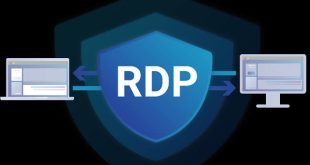Nigerian Communications Commission (NCC), has introduced registration fees on telecommunication type approved devices and short codes.
This is coming despite the existing 7.5% Value Added Tax (VAT) and soon to be implemented 5% excise duty Nigerians are already paying for and would be paying in telecommunication services.
The Executive Vice Chairman of the Nigerian Communications Commission (NCC), Prof. Umar Danbatta, disclosed this during a three-day consecutive public inquiry on some draft Telecom Regulations and Guidelines, where said the review became necessary due to current realities in the industry.
Professor Danbatta said they expect that this review would improve the standards and procedures for Type Approvals, Operation of Short Codes and advertisements, and Promotions. They also hope it would ensure a more robust framework for the deployment of Communications Infrastructure and guarantee that the procedures to be followed by a Licensee in preparing approved consumer codes of practice are in tandem with current realities.
“It is important at this juncture to state that all (5) five regulatory instruments are existing instruments which are being amended to reflect current realities.”
While the introduction of fees on type approved devices and short codes was made known in a presentation by the Principal Manager, Technical Standards and Networks Integrity, Department, Nwanze Onyeye during his presentation.
“What the commission is introducing that was not there before is payment for type approved Telecom devices and short codes which used to be free.”
Speaking further Danbatta said, The regulatory instruments being reviewed cut across all sectors/
segments of the telecommunications industry.
“The first instrument, the Type Approval Regulations, provide a framework for the approval of communications equipment for connection to communications networks in Nigeria, pursuant to sections 130 to 134 of the Nigerian Communications Act, 2003.”
“The second instrument, Guidelines on Short Code Operation in Nigeria, is intended to prescribe a standard of practice for providers of short code services and to provide a revised framework for the provision of these services and for the protection against misuse.
“The third instrument, being the Guidelines on Technical Specifications for the Deployment of Communications Infrastructure, provides standards to be adhered to by Communications services providers/operators, designers, fabricators and installers of Communications towers and laying of fibre optic cables towards ensuring environmental safety and sound engineering practices.
“The fourth instrument is the Guidelines on Advertisements and Promotions, which provides minimum requirements and standards for promotional advertisements by licensed telecommunications operators in Nigeria.
“Finally, the fifth instrument, which is the Consumer Code of Practice Regulations, amongst other things, sets rules for consumer protection and prescribes the procedures to be followed by a Licensee in preparing approved consumer codes of practice, in accordance with section 106 of the Act.
“It is pertinent to add that the Commission has also introduced Business Rules for Type Approval to address issues that cannot be catered for in the Regulations and ensure that the Type Approval process is seamless.
“It is our expectation that this review will improve the standards and procedures for Type Approvals, Operation of Short Codes and Advertisement and Promotions, ensure a more robust framework for the deployment of Communications Infrastructure and guarantee that the procedures to be followed by a Licensee in preparing approved consumer codes of practice are in tandem with current realities.” He added
Head, Telecoms Laws & Regulations, Legal & Regulatory Services Department of the NCC, Ms. Helen Obi, said that Public Inquiry is an avenue that allows the Commission to incorporate the comments and suggestions of industry stakeholders, in the development of its regulatory instruments.
She said that the Commission had held Public Inquiries on the Registration of Telephone Subscribers Regulations, the SIM Replacement Guidelines, Frequency Spectrum (Fees and Pricing, Etc.) Regulations, Annual Operating Levy Regulations, Guidelines on National Roaming, Guidelines on Colocation and Infrastructure Sharing and the Spectrum Trading Guidelines.
“This process ensures that the regulatory instruments issued by the Commission are in line with the current realities in the industry.”
 Business Remarks ICT News in Nigeria, Latest News in Nigeria, Latest Business News in Nigeria, Latest Nigerian News, Technology News in Nigeria, Latest Tech News in Nigeria, Nigeria Business News, Top Nigerian Newspapers, Breaking news in Nigeria, Top News Headlines From Nigeria, Opinions and Metro News in Nigeria, Nigerian News, Trending Events in Nigeria, Daily News in Nigeria
Business Remarks ICT News in Nigeria, Latest News in Nigeria, Latest Business News in Nigeria, Latest Nigerian News, Technology News in Nigeria, Latest Tech News in Nigeria, Nigeria Business News, Top Nigerian Newspapers, Breaking news in Nigeria, Top News Headlines From Nigeria, Opinions and Metro News in Nigeria, Nigerian News, Trending Events in Nigeria, Daily News in Nigeria









